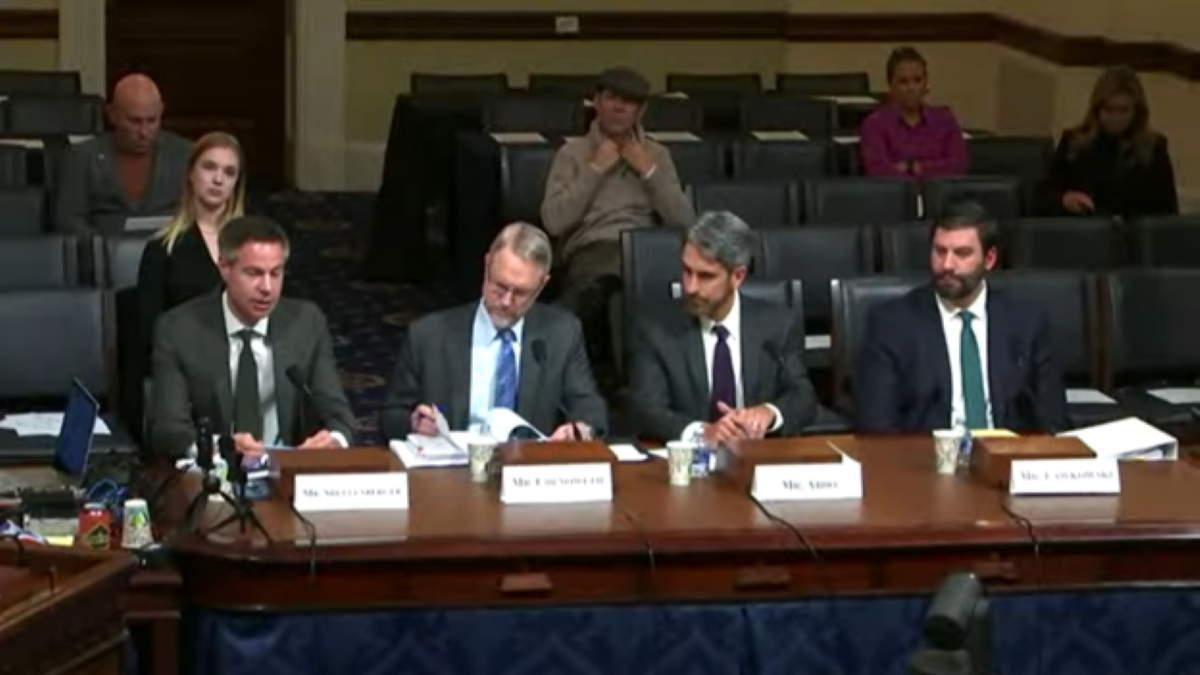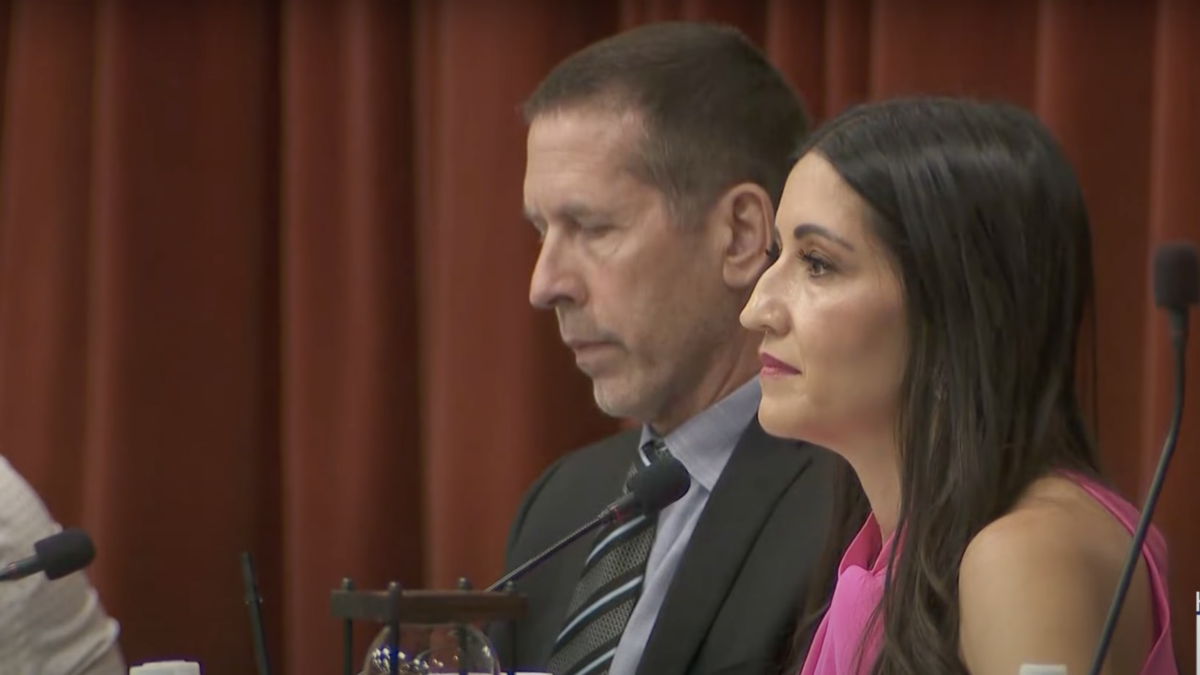The federal government’s censorship-industrial complex is an existential threat to Americans’ First Amendment rights, several witnesses testified during a House subcommittee hearing on Wednesday.
The federal government “not just participated, but led this creation of … a mass flagging and censorship operation that was coordinated with a broader effort to pressure [Big Tech] platforms to do more censorship,” independent reporter Michael Shellenberger said.
Titled “Censorship Laundering Part II: Preventing the Department of Homeland Security’s Silencing of Dissent,” Wednesday’s hearing before the Subcommittee on Oversight, Investigations, and Accountability analyzed federal agencies’ extensive efforts to collude with Big Tech platforms to silence Americans online for questioning claims made by the government. During his opening statement, subcommittee chair Rep. Dan Bishop, R-N.C., underscored the role of the Cybersecurity & Infrastructure Security Agency (CISA), a subagency within the Department of Homeland Security, in coordinating this censorship operation.
“What is stopping DHS from overreaching its jurisdiction beyond elections to censor more Americans to ‘protect’ whatever government-deployed orthodox notions it deems ‘critical infrastructure’?” Bishop asked. “The answer is: nothing.”
Often called the “nerve center” of the federal government’s censorship complex, CISA facilitates meetings “between Big Tech companies, and national security and law enforcement agencies to address ‘mis-, dis-, and mal-information’ on social media platforms.” Ahead of the 2020 election, for example, the agency upped its censorship efforts by flagging posts for Big Tech companies it claimed were worthy of being censored, some of which called into question the security of voting practices such as mass, unsupervised mail-in voting.
An interim report released by House Republicans last month revealed that CISA’s censorship enterprise was more extensive than previously known. According to that analysis, CISA — along with the State Department’s Global Engagement Center (GEC) — colluded with Stanford University to pressure Big Tech companies into censoring what they claimed to be “disinformation” during the 2020 election. At the heart of this operation was the Election Integrity Partnership (EIP), “a consortium of ‘disinformation’ academics” spearheaded by the Stanford Internet Observatory that coordinated with DHS and GEC “to monitor and censor Americans’ online speech” ahead of the 2020 contest.
Created “at the request” of CISA, EIP allowed federal officials to “launder [their] censorship activities in hopes of bypassing both the First Amendment and public scrutiny.” As documented in the interim report, this operation aimed to censor “true information, jokes and satire, and political opinions” and submitted flagged posts from prominent conservative figures to Big Tech companies for censorship. Among those targeted were The Federalist’s Mollie Hemingway and Sean Davis.
[RELATED: State Of Texas Joins The Federalist, Daily Wire In Suing The Federal Censorship-Industrial Complex]
Also highlighted during Wednesday’s hearing was Missouri v. Biden, an ongoing court case to be decided by the U.S. Supreme Court that documents efforts by the Biden administration to coerce Big Tech platforms to engage in similar censorship activities. In his testimony, Mark Chenoweth, president of the New Civil Liberties Alliance (NCLA), noted how the federal government pressured social media platforms into censoring Americans “who dared to express rational and scientifically accurate views about the Covid-19 virus and the vaccines” and in doing so, violated their First Amendment rights. NCLA is representing the individual plaintiffs in Missouri v. Biden.
“Indeed, I daresay there are some in this room—on both sides of the aisle—who brush away the monumental efforts of the Biden Administration to squelch speech on Twitter, Facebook, LinkedIn and other social media sites as merely the actions of private companies. Not so,” Chenoweth said. “When the government coerces or pressures a company with inducements or threats and the company responds by crushing private individuals, that is state action, and the First Amendment forbids it.”
Meanwhile, CISA officials testifying during Wednesday’s hearing avoided answering questions from Republicans about how the agency’s efforts to combat so-called “disinformation” have changed in recent years. When pressed by Bishop on how CISA’s practices have evolved since the 2020 election, for example, agency official Iranga Kahangama declined to provide a straightforward answer.
Despite evidence showing otherwise, House Democrats attempted to defend the federal government’s censorship activities by pretending they never occurred. In his opening statement, for example, ranking member and Maryland Democrat Rep. Glenn Ivey claimed the evidence showing CISA’s role in the censorship-industrial complex “completely misses the mark” and further cited a quote from a CISA official asserting the agency doesn’t censor speech as evidence that it doesn’t engage in such behavior.
Meanwhile, Rep. Yvette Clarke, D-N.Y., similarly attempted to convince Americans the myriad communications documenting government-compelled censorship do not exist, falsely claiming there is “no evidence” CISA has “engaged in any nefarious or unconstitutional activity.”









